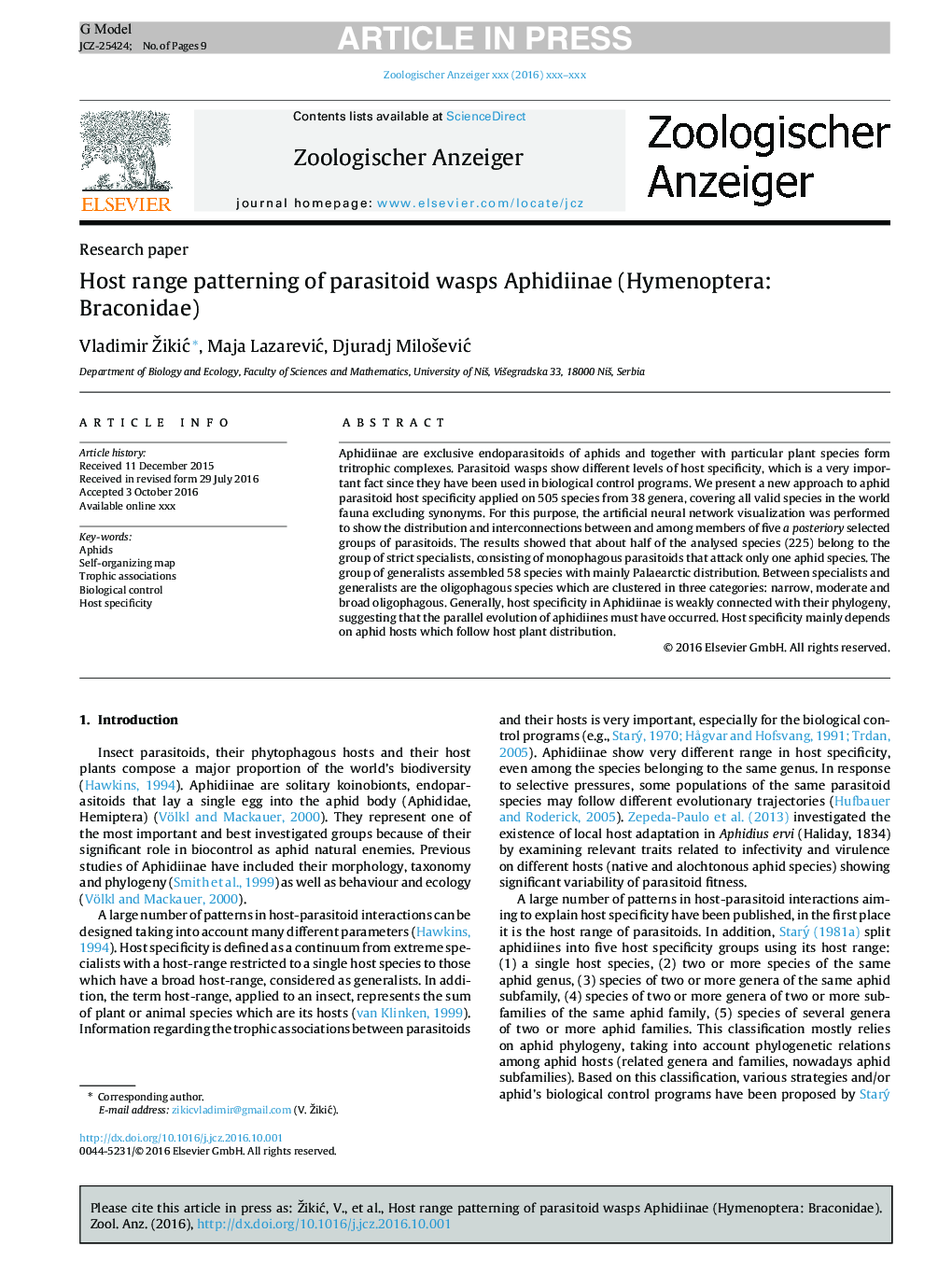| Article ID | Journal | Published Year | Pages | File Type |
|---|---|---|---|---|
| 5586478 | Zoologischer Anzeiger - A Journal of Comparative Zoology | 2017 | 9 Pages |
Abstract
Aphidiinae are exclusive endoparasitoids of aphids and together with particular plant species form tritrophic complexes. Parasitoid wasps show different levels of host specificity, which is a very important fact since they have been used in biological control programs. We present a new approach to aphid parasitoid host specificity applied on 505 species from 38 genera, covering all valid species in the world fauna excluding synonyms. For this purpose, the artificial neural network visualization was performed to show the distribution and interconnections between and among members of five a posteriory selected groups of parasitoids. The results showed that about half of the analysed species (225) belong to the group of strict specialists, consisting of monophagous parasitoids that attack only one aphid species. The group of generalists assembled 58 species with mainly Palaearctic distribution. Between specialists and generalists are the oligophagous species which are clustered in three categories: narrow, moderate and broad oligophagous. Generally, host specificity in Aphidiinae is weakly connected with their phylogeny, suggesting that the parallel evolution of aphidiines must have occurred. Host specificity mainly depends on aphid hosts which follow host plant distribution.
Related Topics
Life Sciences
Agricultural and Biological Sciences
Animal Science and Zoology
Authors
Vladimir ŽikiÄ, Maja LazareviÄ, Djuradj MiloÅ¡eviÄ,
